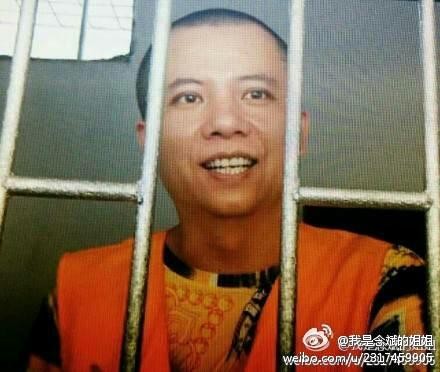
Update | Hawker Nian Bin in hiding after Chinese court overturns death sentence
Fujian shop owner spent six years on death row; court did not address torture claims
A man who spent six years on death row in China has gone into hiding after a landmark court decision cleared him of the murder of two children.
The Fuzhou High People’s Court declared shop owner Nian Bin, 38, innocent of the fatal poisoning of two children in 2006, it said in a statement on Friday.
The court reversed the death sentence first handed out by the Fuzhou Intermediate People’s Court in 2008.
Fujian province’s top court also ruled against civil compensation claims over the children’s death.
The decision on Friday comes after Nian’s family mounted a high-profile social media campaign claiming he was tortured to confess to a crime he did not commit.
“Thank God, Nian Bin was declared innocent and immediately released!” Nian Jianlan, his elder sister, wrote online while at court. Nian’s family shared photos of him hugging his relatives and leaving the court in tears.

Zhang Yansheng, who along with Si Weijiang led Nian’s defence, said on Friday afternoon she has been unable to reach the family ever since they drove away from the court house in Fuzhou to avoid the media frenzy and the children’s family, who have opposed his release.
“They don’t dare to return home,” she said. “Their home had been ransacked by the children’s relatives. [The family] still believes he killed the children.”
Zhang thanked the court for its ruling. “Thank you for ultimately withstanding pressure,” she wrote online in a first reaction, referring to long-standing allegations she made that local authorities had tried to prevent a fair trial.
Nian stood accused of poisoning a family in Pingtan county, an island off the eastern coastal province, in 2006. The family’s two children died and police promised to swiftly identify the culprit.
They found traces of rat poison on the door handle of the apartment rented by Nian next door. When interrogated by police, he confessed to the crime.
In 2008, the Fuzhou Intermediate People’s Court declared him guilty of murder and sentenced him to death. Nian, however, appealed, saying he had been forced to confess under torture.
Police had used “geshan daniu”, a technique to administer beatings that leaves few marks on the interrogated person’s body, Lawyer Zhang said. Police denied the allegation in court.
Nian’s decision to appeal marked the start of an arduous legal battle for the man, who has a wife and 12-year-old son, and his family. They also launched a campaign online, at first blogging and then, as Weibo became popular in China, micro-blogging the newest developments in the case.
In videos they shared online, they documented harassment by local authorities who were eager to avoid nationwide publicity.
On appeal, the provincial high court sent the case back to the Fuzhou court, arguing that evidence was insufficient to warrant the death penalty.
The Fuzhou court, however, decided to uphold the death sentence. The provincial high court, in turn, approved the sentence.
The last legal step prior to Nian’s execution was the approval by the Supreme People’s Court in Beijing, the nation’s highest court. Since 2007, the court has reassumed reviewing each death sentence.

The court argued that the evidence was insufficient to warrant a death sentence and sent the case back for retrial. But yet again, in defiance of the Beijing ruling, the Fuzhou court sentenced Nian to death.
He, however, appealed again to Fuzhou High People’s Court and on Friday morning was acquitted.
For Maya Wang, a Hong Kong-based researcher with Human Rights Watch, the reversal of the verdict is unprecedented.
“In the past, courts tend to treat cases like this with a final suspended death sentences as a compromise, at most the suspects are released on bail,” she said.
“How the authorities handle the aftermath of Nian’s acquittal will tell us more about how serious the authorities will be at handling wrongful convictions and the use of torture in criminal justice.”
Lawyer Zhang said she did not expect anyone would now look into the torture allegations or the police investigation that led to Nian’s arrest and conviction. “The courts cannot handle such matters, it would have to be a police investigation,” she said. “They are not going to slap themselves in the face.”
Zhang said she would suggest to Nian to request government compensation for the eight years he spent in prison as soon as she could reach the family.
She said she did not know until the last moment whether Nian would walk free on Friday. “In my heart, I was convinced that he was innocent,” she said. “But anything is possible in Fujian.”
Correction: An earlier version of the story wrongly stated Nian spent eight years on death row. He was detained for eight years, six of which on death row.

